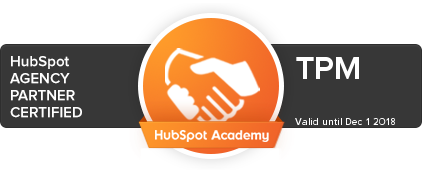Partner marketing (sometimes also referred to as partnership marketing) is everywhere. Companies of all shapes and sizes are working together to achieve their mutual marketing goals. But what is it really? How does it work? And how does it translate to the B2B space?
As we started reviewing and refreshing some of our own partner marketing content, we realized that, while everyone is talking about partner marketing, few people are explaining what it is and how it works. So we’re going back to basics. If you’ve got questions about what partner marketing is, why (or if) it’s worthwhile, and if B2B partner marketing makes sense for your business, this is the post for you.
What is Partner Marketing?
Partner marketing is an arrangement between two businesses (or a business and an opinion leader, influencer, or other individual) where both work together to help the other achieve their marketing objectives.
(Really, it’s a somewhat overused term that means one business or person is helping another sell their products or services, and vice versa.)

Different Types of Partner Marketing
Affiliate (or Ambassador) Marketing
Affiliate marketing is when a partner sends customers to your website. Most people will recognize this strategy from blog posts and social media, where the content creator will mention a specific product or service and link to the site of the company selling it. The company selling gets more traffic, and the promoter generally gets compensation in the form of financial payment or free products.
B2B Affiliate Marketing Examples:
- SEMrush: Marketing agencies or SEO experts that join the SEMrush Affiliate Program are paid for new sign-ups, trials, and subscriptions they generate for the analytics platform. The program includes the resources to promote SEMrush to clients and allows partners to earn money while SEMrush grows its reach.
- Shopify: The ecommerce giant’s affiliate program is a great revenue booster for new online merchants. Besides providing financial incentives for referrals, Shopify also encourages brands to join its affiliate initiative to access exclusive sales and growth opportunities.
Channel Marketing
Channel marketing is where one business sells another’s product or service under the original branding. The channel partner gains the business of consumers looking to purchase that brand, and the brand gains access to the channel partner’s market.
Channel Marketing Examples:
- PayPal: System integrators are a driving force in the rapidly growing ecommerce space. PayPal tapped TPM to help them develop a global community that could help those SIs deliver better support (and PayPal services) to digital merchants.
- Grocery stores (B2C): Grocery retailers purchase and promote products from food producers. Consumers loyal to a specific brand are more likely to visit a store that carries it, while the brand has the opportunity to reach the store’s existing shoppers.
Co-Marketing or Co-Branding
Co-marketing or co-branded marketing is when partners team in a mutually beneficial marketing arrangement that helps both achieve their engagement, sales, or revenue goals. This type of partnership often includes collaboration on marketing assets that feature the branding and expertise of all partners.
Co-Marketing Examples:
- Adobe | Magento and their ecommerce partners: TPM has worked in partnership with Adobe | Magento and a number of the ecosystem partners like PayPal, Braintree, Square, and DHL to create content that helps digital merchants improve conversions and boost sales — which, in turn, drives increased revenue for the various partners.
- Apple and Nike (B2C): The electronics and sportswear giants have partnered on numerous co-branding campaigns, including the Nike+iPod and the Nike edition of the Apple Watch — helping each corporation reach the other’s massive (and loyal) audience.

Partner Enablement
This term is often used interchangeably with partner marketing. While related, they are actually two separate concepts. Partner enablement is when one business provides another with training or resources to effectively resell its products.
Partner Enablement Examples:
- Intelisys: TPM helped Intelisys build their Cloud Services University portal, which allowed their partners and resellers to access training, educational resources, and performance analytics so they could more effectively promote Intelisys services.
Reselling (aka Value-Added Resellers)
While this sounds like channel marketing, it isn’t. Resellers purchase a company’s products and change them slightly to sell under their own brand. (This is where white labelling and partner enablement come in.)
Value-Added Reseller Examples:
- Turnium TTGI: The white-label version of Turnium’s SD-WAN-as-a-service offering lets resellers repackage the services under their own branding before providing them to end customers.
- Cloud service providers: Most consumers don’t buy their internet services directly from hyperscale cloud providers or large telecommunications firms — they purchase packages from local partners that often offer their own services, like technical support, email, or streaming subscriptions, to enhance the value of the core offering.
The Benefits of B2B Partner Marketing
Partner marketing is an essential tool in the B2B marketer’s arsenal. While methods like affiliate marketing are much more common in the B2C space, B2B organizations can benefit in a variety of ways from working with channel partners, value-added resellers, or ecosystem partners.
- Increased efficiency: Leveraging the expertise, skill, and marketing resources of multiple companies means a lighter load on each partner’s marketing team. This is especially true when partners have complementary strengths — like if one has the capacity to produce high-value assets, but the other has niche expertise to contribute.
- Access to new audiences: Working with a partner gives you access to a new customer base who might not otherwise engage with your marketing efforts. As a bonus, your partner has likely already built a relationship of trust with them, giving you credibility by proxy.
- Competitive advantage: Enhancing your channel partners’ or resellers’ ability to sell your product ultimately translates into more revenue for you, which is obviously a benefit. But your partner enablement and co-marketing efforts can also make you a more attractive partner than your competitors.
- Reduced risk: Collaboration with a partner — whether on a new offering or a fresh marketing strategy — increases your chances of success and can help you avoid common stumbling blocks.
Get Help from the B2B Partner Marketing Experts
B2B partner marketing can help you grow your business, increase the ROI of your marketing budget, and maintain a competitive edge in your industry. At TPM, we’ve worked with B2B technology companies of all shapes and sizes to develop a partner marketing strategy, build partner portals, and create co-branded content that delivers results for our clients and their marketing partners. Let us help you kickstart your partner marketing efforts — contact us today.



